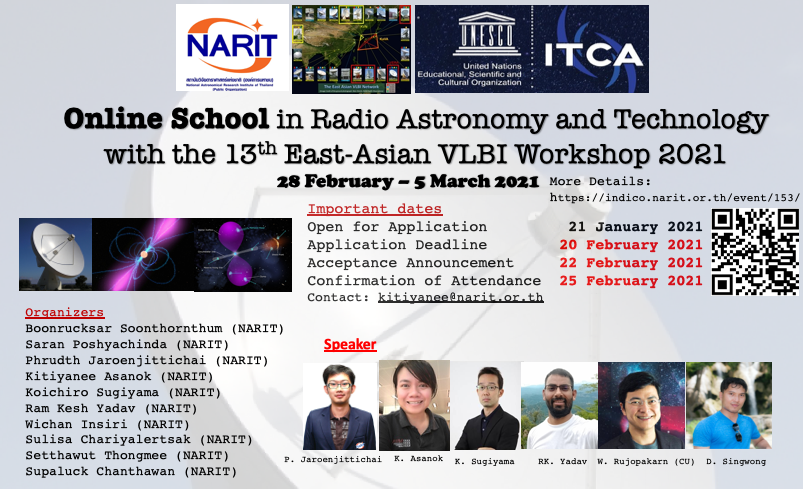
Radio Astronomy is the science of receiving electromagnetic signals from astronomical objects at radio wavelengths. This enables us to address several fundamental issues linked to a variety of astrophysical objects and campaigns e.g. pulsars, young stars, active galactic nuclei, black holes, and Search for Extraterrestrial Intelligence (SETI), etc. In Thailand, National Astronomical Research Institute of Thailand (NARIT) initiated a radio astronomical project, so-called Radio Astronomy Network and Geodesy for Development (RANGD) dedicated for the development of Thailand’s own network of radio telescopes to make Thai Very Long Baseline Interferometer (VLBI) Network (TVN). The 40-m Thai National Radio Telescope (TNRT) and 13-m VGOS in Chiang Mai are to be the first generation radio telescopes of the TVN. The first light of TNRT is expected to happen during late 2021- early 2022 which will provide ample opportunities for research engineering/technological development. One spin-off of the RANGD project is the collaboration with the world-wide astronomical community through technological developments and astronomical research. The VLBI (Very Long Baseline Interferometry) technique provides an excellent opportunity to establish such collaborations through the use of multiple radio telescopes and networks of telescopes e.g. the East-Asian VLBI Network (EAVN), which consists of Japan, Korea, and China VLBI Networks.
In this framework, NARIT will organize an online school on radio astronomy for the students who are interested in this field and would like to know deeply in detail all about how to do research by participating in the 13th EAVN workshop with many expertises of radio astronomers and the top researchers around the world.
In this short school, we will present 1) Basics of radio astronomy, 2) RANGD project, 3) Introduction of interferometer and VLBI, and 4) What's EAVN and the future with RANGD project.
Who can apply?
The school is preferably open to Thai 3rd– 4th year undergraduate and the 1st-year postgrad students in Physics, Engineer, Computing or related fields.
Remark: The number of registers is limited by zoom account therefore the total limit is approximately 20-30 students.
